Janus | Interview
Janus were an English band formed in Germany that released a hard rock classic, ‘Gravedigger’ in 1972.
Where were you born?
Colin Orr: Maghull, Liverpool.
Were you part of any bands before forming Janus?
I was in The Washtub Blues Band and Dead Buzzard, one of the first real Prog Rock bands, in 1968, playing in the major clubs of the Midlands of England. We were in discussion with a couple of labels about recording, but we were 17 – 18 years old, and way too stupid to know how to handle those discussions – so we ended up fighting amongst ourselves, and the band broke up. That’s what led me to go to Germany and start again….
Who were members of the band and what’s the story behind forming in Krefeld, Germany?
We were 6 in total, as a result of amalgamating two bands – Keith Bonthrone on drums, Mick Peberdy on Bass Guitar, Roy Yates on Classical/Flamenco guitar, Bruno Lord on Vocals, Derek Hyett on Vocals, and myself (Colin Orr) on guitar/keyboards. Roy and Derek were serving in the British army (but resigned when the band was signed by EMI), the rest of us were working for the NAAFI organisation in Krefeld. In fact, we were responsible for the first strike in NAFFI’s 100 year history, when they decided to move us to a hostel in Duisburg. I was recently really pleased that the Krefeld town site included the band as part of the town’s history.
Where did you rehearse?
We had various rehearsal spaces, usually small cellars (one in the NAAFI hostel in Krefeld), in which we set up monstrous Marshall stacks on full volume, which at the time was fun, but may explain why we all tend to answer questions with “What?” nowadays….. We did use an old Second World war bunker in Krefeld, as well, which was a bit strange as the walls still had some of the 1940’s material on them. There were other Krefeld bands practicing there too, at times, so it was often a case of “who could play the loudest” – Janus usually won.
How did you decide to use the name ‘Janus’?
We were originally called “Bonthrone” after our drummers surname, as we spent hours trying to think of a snappy, attention-grabbing, name – we were very nearly “Amber Grunt” – but couldn’t really get anything we all agreed on. When we were signed to EMI, they pointed out that the “th” sound in German wasn’t very comfortable, so they suggested we change to “Janus” as that name (the Roman God of Beginnings and Endings/Transitions) was a great reflection of the diverse kind of music (Rock and Classical, Electric and Acoustic) that we played. We were quite happy with that.
Did you often play live?
Strangely we didn’t ever play many gigs – we did a couple of performances at “The Jazz Keller” in Krefeld, to incredibly enthusiastic response, an occasional festival, and a particularly disastrous mini Mini-Tour with Nektar, where we discovered that their roadies were smoking a much stronger kind of weed than we were used to, and that smoking that weed before a performance left us almost incapable of standing up, let alone performing our rather complicated repertoire. We were truly awful, only rescued by some great solo work from Roy Yates, who didn’t touch any of the drugs that were so much a part of the music scene then.
How did you get signed to Harvest?
We had made a demo of the original material we were working on, which we sent to the Paul Acket organisation in Köln. They didn’t have a tape player available, so took the tape down the road to Maarweg studios, which was the home of EMI Electrola, to listen on their machine. EMI executives heard the demo, and immediately invited us in to record some of the tracks in their 8 track studio, which led to the record contract. We never did play any gigs for Paul Acket though.
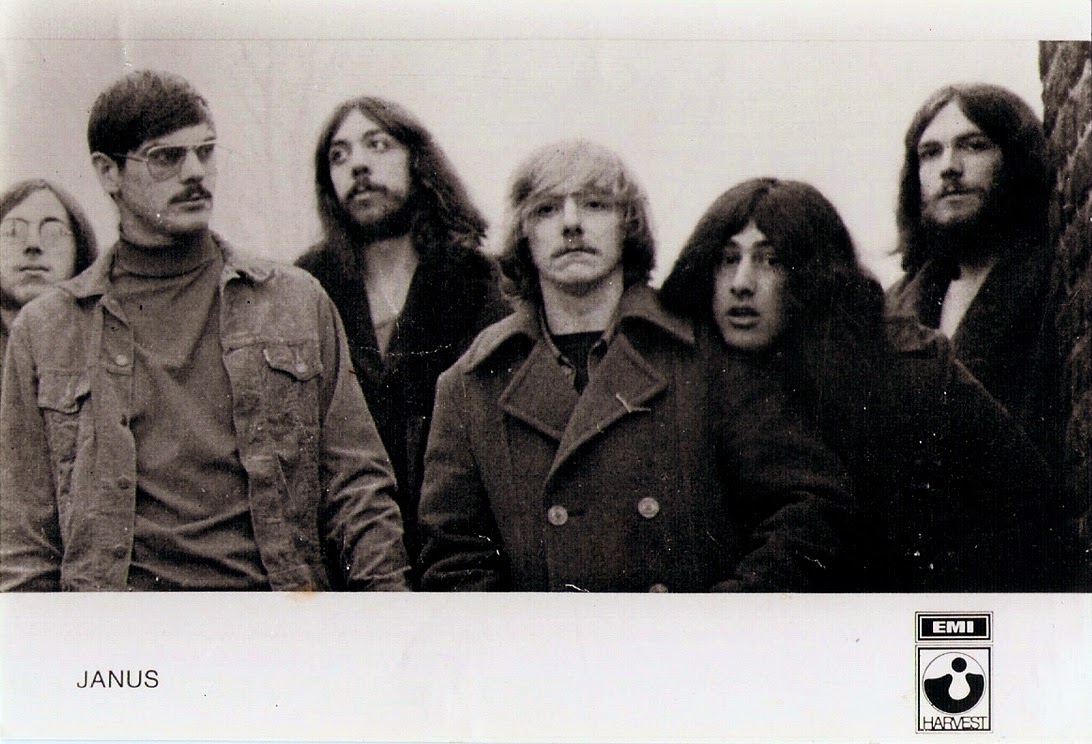
How was the distribution?
It was initially a big thrill, to hear our music on Radio Luxembourg, but we were really disappointed with the album sound – we were very loud, aggressive, and probably as much Punk as Prog, years before the Punk movement in music, but the production for various reasons on the album, was very west coast, trippy, and (with apologies to present company) we were never really a psychedelic band. Sales weren’t very thrilling, but I think EMI Electrola were very cheap in their promotion efforts. As far as I remember, we had one “autograph signing” session in a Krefeld record store that they organised, that seemed a bit pretentious, as we were relatively unknown, and by sheer fluke we did get a bit of TV exposure on WDR.
What was the writing and arranging process within the band?
The writing was generally me with the music, then lyrics from either me, or in collaboration with the vocalists, or from them individually. Derek had a nice turn of phrase, but was very dark and doomy. For the ‘Gravedigger’ track, the whole classical/flamenco guitar section was created by Roy Yates, but what happened there was that in the initial demo recordings, Roy played popular classical pieces that he strung together, for the actual album sessions, Roy had spent months working out very complex, technically brilliant, guitar work – after one take, the producer stopped him, and told him to go back to the demo stuff, for purely commercial reasons. We were not confident enough to argue, so that’s what happened on the album – it is a huge tribute to Roy that he managed to put together about 8 minutes (no overdubs in those days). Roy made one mistake (a fluffed note), so it was a pleasure to fix that in the remix I did in Nashville in 2013. Since the 1972 incarnation of Janus, the band has had a few visiting members, and I’ve collaborated with some great musicians and other writers, like Paul May (the band AND), Dean Houston (a phenomenally gifted Saxophonist), Paul Phoenix (was the main man in the Kings Singers), so I’m happy either solo or collaborative.

Where was the ‘Gravedigger’ LP recorded?
We recorded Gravedigger in 2 intense days, at EMI Electrolas Maarweg Studio in Köln, after subtracting sleep time, the whole album including mixing was done in about 24 hours. We also had some of that time down for the Köln Philharmonic strings (who provided orchestral parts on ‘Gravedigger’ and were reversed on ‘Watcha Trying to Do?’ This was the first time Electrola had recorded a rock band, and the first time that we’d recorded in a professional studio, so we all got it badly wrong – we used our stage rigs, which were very loud, and unsuited to a studio environment, they couldn’t provide adequate monitoring, so for guitar solo overdubs, I couldn’t hear the track through the headphones, had to have Keith and Bruno clapping the time in front of me, and clamping the headphones to my ears. On ‘Red Sun’ that’s why there are some pauses in the guitar solo – it wasn’t intricate timing, it was stopping to hear where the track was up to! Poor Keith had his drums damped so much (with blankets across the skins) he wasn’t getting any “bounce” from the sticks, so he also had big problems with playing naturally. Then for ‘Gravedigger’ we had rehearsed a dual lead vocal with Bruno and Derek – who were, shall we say, a little competitive about the lead vocalist role – the producer stopped the first take, to tell us (he was correct in this) that the song would work better with one voice. So we had to make the decision on the spot, and that came down to me – didn’t help the atmosphere much…. then during the ‘Gravedigger’ instrumental take, Mick the bass player managed to stand on his lead, and unplug himself for a bar or two. That actually went out on the record……. which was a small, but important part of the way I think the album wasn’t up to the standard of the band, and amongst the reasons mentioned above, left me very disappointed with it. But ….. Gravedigger has been on sale commercially for 43 years, so I guess it must appeal to people on some level.
What kind of equipment did you use and who was the producer?
Keith had a Ludwig drum kit, Mick used a Marshall bass stack (100W 2 4×12 Cabinets), Roy used a Gibson Les Paul through a Marshall Lead stack (100W 2 4 x 12 Cabinets), I used a Gibson SG Junior through a 120W Triumph Solid State Amp (one of the first) and 2 4×12 Laney Cabinets. We had a Dynacord Tape Echo unit that was fabulous, but our PA was by modern standards very minimal – once we started mixing instruments up, we did improve matters, and went to a 2K PA rig.
Did it garner much airplay or chart in any markets?
No, Gravedigger didn’t make any waves at the time – think it sold out the first pressing (3,500 copies) fairly quickly, but after that it just dribbled along. I was told by a German journalist that he estimated the album to have sold around 250,000 copies over the 43 years though. It was only the ‘Agnus Dei’ track that was released in 1991 that made the European & the 2000 release that crept into the lower end of the Canadian charts. I know for some strange reason, in the early 1990’s ‘Red Sun’ from the Gravedigger album became very popular on US College Radio.
How did critics receive the album?
Critics weren’t very friendly – in fact the major German TV show (Beat Club was it?) declined to feature the band because they “didn’t like the album”. We were told it was “old fashioned”, “out of date”, and with that production (which was more 1969 than 1972, a period in which music rapidly evolved) I agreed…but still, at that point I don’t think anybody had created a track like ‘Gravedigger’, which is credited with inventing “Acoustic Rock”.
Would you share your insight on the albums’ tracks?
‘Red Sun’: One of the first songs I ever wrote, was played at gigs around the midlands of England by “Dead Buzzard” in 1968. So a very simple (and you may notice familiar from other later releases by better known bands) riff was the main element of the track. It was short on vocals, and long on guitar solo, which was obviously a lot of fun for me – until I tried to record it in Maarweg!!!
‘Bubbles’: I wrote after an LSD trip, but the lyrics were from Derek. The transition from the pop feel of the verse, into the destructive, howling middle section, was ruined on the album, there’s no real transition, and what was a very heavy “doom rock” section just sounds thin and weak.
‘Watcha’ Trying to Do?’: Another “stoner track”, in which my lyrics are, in retrospect, not quite as bizarre as they seemed at the time. The eerie, nasty, atmosphere on the track is helped by the reversed string section, so although to many, this is the weakest track on the album, I suspect it’s the closest to the original intent.
‘I Wanna’ Scream’: Literally written on the fly as we rehearsed one day. A little bit “Punk”, and on the album suffers from the recording robbing the instruments of the low-end that would have captured the raw power of the band. (The original Janus line-up from 1972 did a live session, and recorded a video last year, so here’s the re-record of ‘I Wanna Scream‘ as it should have sounded in 1972.
‘Gravedigger’: Overly long, as a result of the producer changing the arrangement, to extend each part, to “build the atmosphere”. As a testament to Roy Yates ability on a guitar at the age of 19, it’s great, as a piece of music it could have been much better played by the rest of us, and was (in my opinion) better in it’s original arrangement.
What can you say about the cover artwork?
I did actually like the cover – they really did go and get a human skeleton and take it to the beach. No risk of sunburn then.
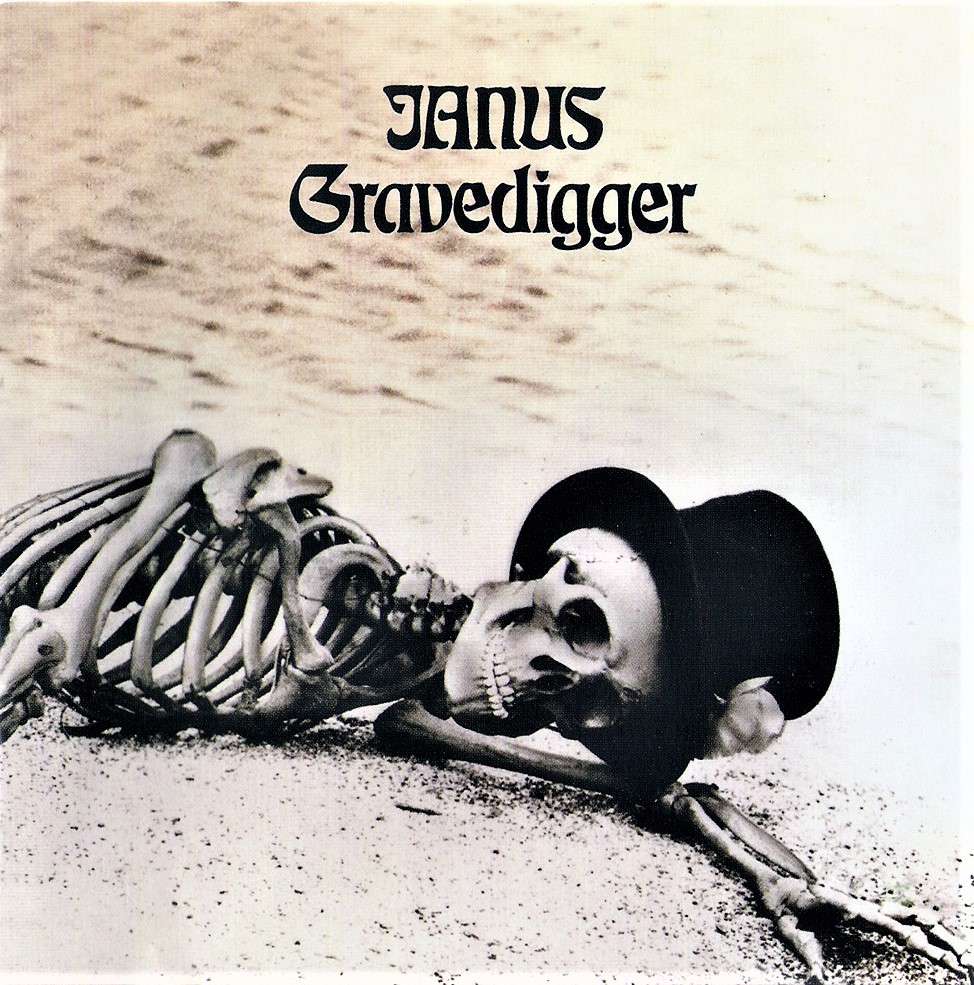
Was there a certain concept behind it?
To some extent the ‘Gravedigger’ track was a sly dig at society condemning the use of drugs in the young, whilst the old establishment used a much more destructive and aggressive drug – alcohol. The other tracks were not so much concept, but something of a taste of where the band was, and was heading. Because of the time constraints, one of the originally intended tracks, “Yesterday has turned to shapeless life” was dropped (I did do a version as a “bonus” track on a subsequent re-release of Gravedigger.)
Did you do any promotional tour after the LP was out?
Only the mini-tour (about 3 dates) with Nektar, and some small scale gigs/festivals. To be honest, we just sat around waiting for the people of the world to come rushing to our door, but they must have had the wrong directions, as they still haven’t arrived…
You were living in Holland for two years?
Yes, we moved into Holland, and continued to party – we really were intent on Sex, Drugs, and Rock’n’Roll, unfortunately too much of the first two, and not enough of the third, probably led to the demise of the band. We ran out of money, and that sent us back to England, where we did a lot more live work, as EMI had already cancelled the second planned album.
How about “Cavern Club in Liverpool” story?
We actually did two gigs at the Cavern Club in Liverpool. After the first, everybody was so pleased with our performance (by this stage we were pretending that we were German, to make us a bit “different”) we were invited back. So we decided to upgrade our sound system for the gig. We used to start with “Hello, we’re Janus from Germany” and then we’d all hit the loudest note we could as the intro. On this occasion, when we hit the note, the walls practically blew out, and most of the audience was splattered in various directions, with bleeding ears. (And I’m only slightly exaggerating). I think we only got about two numbers into the act before we were thrown out.
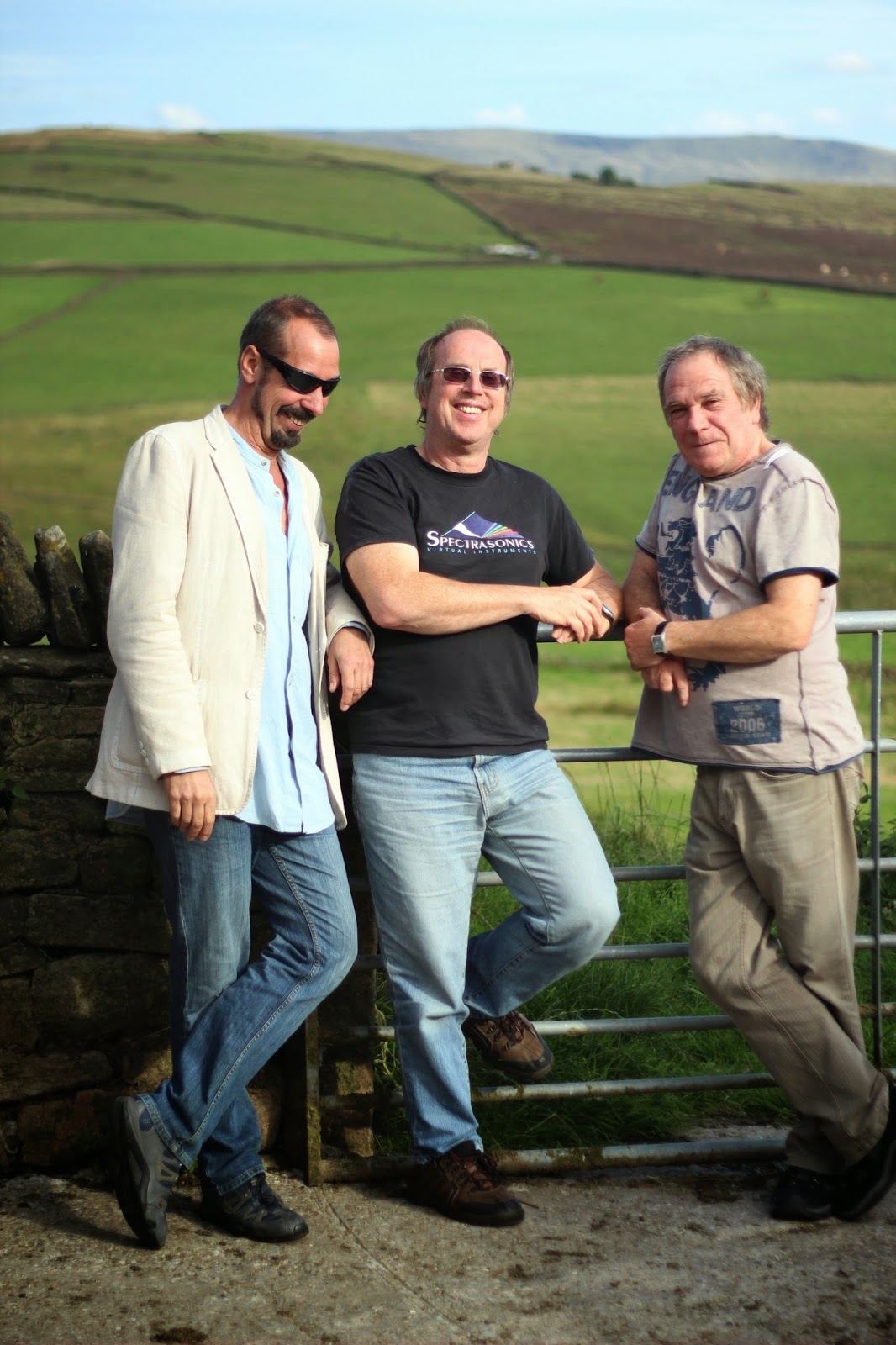
What’s the story about your second album?
We had the concept, for the main title track ‘Under the Shadow of the Moon’, which was intended to musically represent a man losing his mind, and the main riff. There were some very good musical ideas developing, which we were, as a band, rehearsing, but once the EMI deal ended, those tracks were all consigned to the dustbin of failed ideas. When EMI asked me to remix Gravedigger in 2013, the subject of the second EMI Harvest Janus album came up, and coincidentally, I had recorded the ‘Under the Shadow of the Moon’ track the previous year, not for commercial release, but just to see what I could do with it using modern technology – this was also suggested by a Canadian Journalist, Ian Gledhill. EMI listened and liked what they heard, so I worked very hard to put an album together around it, which has become (I suspect) the last ever release on Harvest, the greatest Prog Rock label of them all. So not only has Janus made more albums than Pink Floyd, we’re the last album on their original label. There’s a video available of the first section of ‘Under the Shadow‘.
What can you say about those songs?
There are some newly written tracks, and some re-records of (hopefully) good songs that were never released, or in the case of ‘If I’d Listened’ it was a short interlude on the ‘Journey’ album, which I felt could be developed into a full song.
Do you recall any crazy stories that happened?
You would need a huge website to cover the craziness of the “Janus years”, but how about the time we were raided by the Krefeld polizei, during which they took our passports away to police headquarters, whilst keeping us locked in a room as they searched the entire house for drugs. They didn’t find any, partly because their internationally renowned sniffer dog fell in love with Bruno, and wanted to stay with him. We were eventually released and told we would have to go to Polizei HQ to collect our passports, which we did – myself and Bruno. It got really interesting when the reception people sent us up to the second floor, where we were supposed to go to Room 211. But we passed a big display cabinet containing some of the biggest rocks of Cannabis you’ve ever seen, from their recent drug busts. It was irresistible, so we tried to penknife the top off the cabinet, but were interrupted when a door behind us opened and an outraged policeman marched us to 211 and told us we would be thrown out of Germany.
Have you been involved in any musical endeavors following the dissolution of the band?
The band ceased in 1974, but re-awakened in 1989 when Gravedigger was re-released on CD. Since then I’ve released 8 or 9 albums under the Janus name, with varying degrees of success (musically and commercially). Following the ‘Gravedigger’ remix and ‘Under the Shadow’ last year, the original band (1972 incarnation) are working on a new album which may or may not see a commercial release. We are just a bunch of old people enjoying making music. I’ve ben lucky enough to work in writing/producing music for film/TV, had a very enjoyable time on a prime time BBC series in 2011 (‘All the Small Things’), doing some crazy choir stuff, as well as conventional music. Have a look at here.

Which was an arrangement I did of a Blink 182 song. The choir you hear is quite a lot of me and my two wonderful daughters, Thea and Rikki. (Rikki also features on vocals on ‘Under the Shadow of the Moon’, Thea on Sax).
There was a resurrection of Janus.
Once Janus was back up and running in 1990, I guess I got carried away a bit, as I was writing a “new” kind of music, combining Latin Plainsong and rock (a new twist on the ‘Gravedigger’ idea) again, this seemed to be very popular commercially, but sadly, for other bands! The subsequent albums went from out and out rock, to introspective instrumental. Perhaps rather than talk about it, if you look here.
There’s a link (“Downloads zum Thema” in the left had column) to a compilation of Janus music from all the albums, free of charge, as a “Thank You” to the people of Krefeld/Germany for giving us the opportunity to make music over the years.
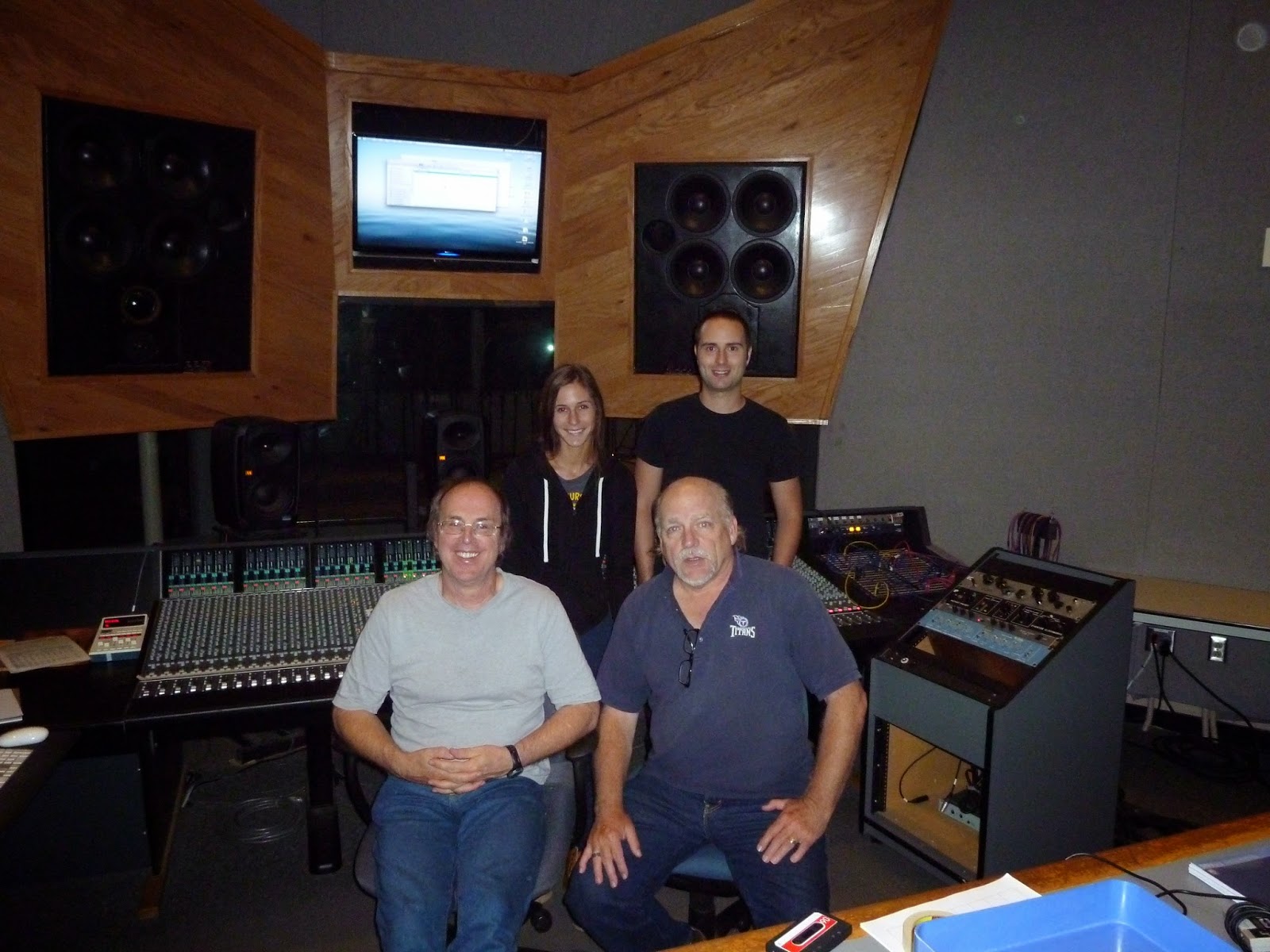
Who is the girl that sings on the track ‘Sit Down and Listen’?
That’s Carmel Parry (now Jakeman) one of two beautiful, extraordinarily talented sisters, I had the pleasure of teaching (I taught Music Technology at a 6th form college for a few years 2003 – 2010). Carmel has one of those wonderful voices, like Karen Carpenter, or Suzanne Vega, which is both haunting and caressing, she also had the potential to be a great songwriter. We did make an album together (with both Carmel and Heather, her sister), partly as Sony were looking for Celtic tracks for a compilation, so as “Morgan Le Faye” we did a few songs, one of which was ‘Sit Down and Listen’. Carmel didn’t see her future in music, which is a great loss to music, but she’s now a successful and very happily married business woman. I think she communicates the sadness of ‘Sit Down and Listen’ brilliantly. Carmel again really hits the “feel” of the song.
What currently occupies your life?
I work hard in my agricultural business, and I work hard in my music business. I am blessed by a wonderful wife, and some talented, intelligent, children. I live in a national park, and have everything I could ever have desired. There’s nothing more I want from life, other than the chance to right some wrongs, and to make my family happy.
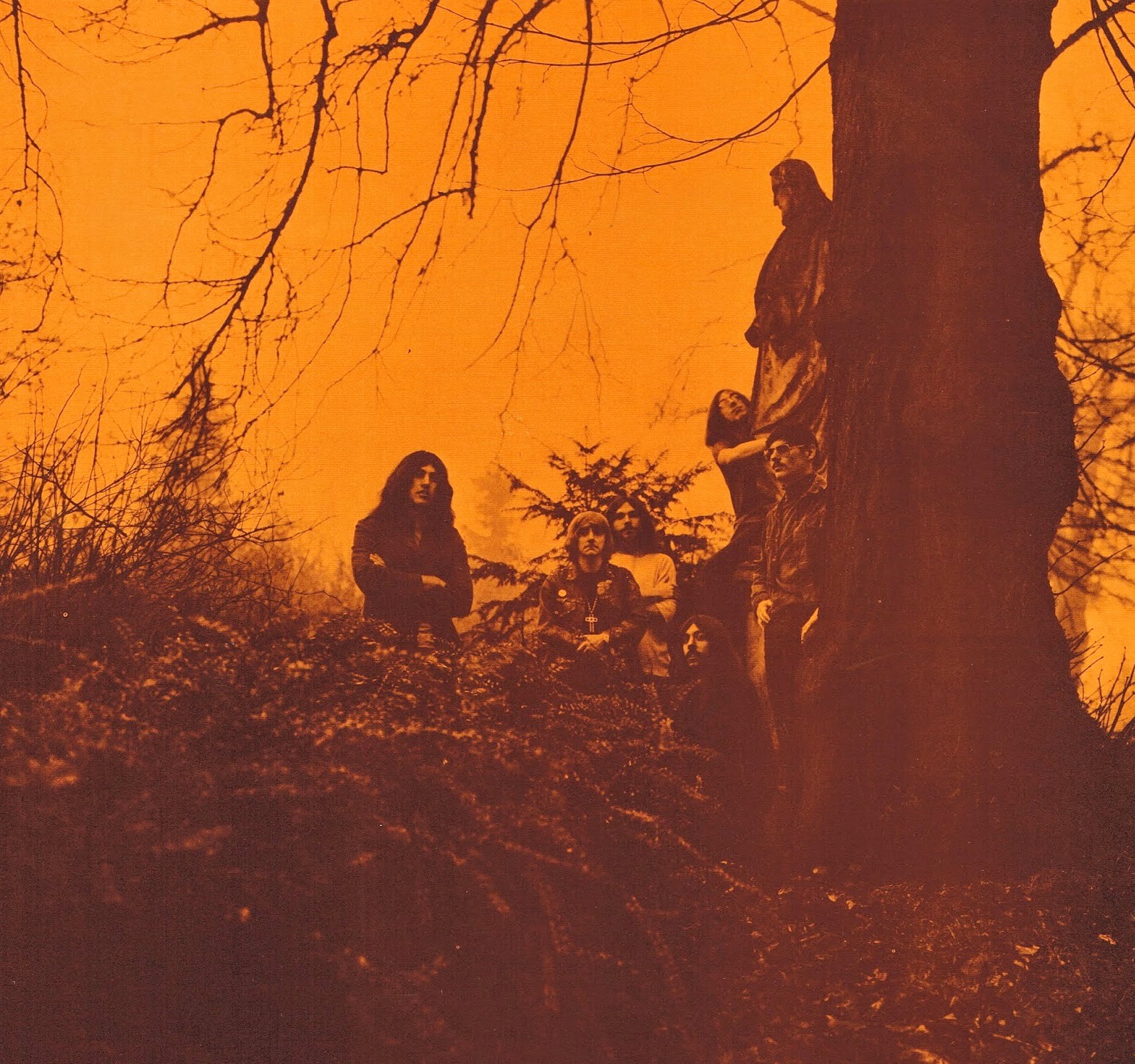
Thank you for your time. Last word is yours.
It’s just “Thanks” – Thanks to you for taking the time to ask the questions, and to your readers (assuming they get this far), and most of all, Thanks to the people who have listened to the music, and enjoyed it. Without their ears, it would have no purpose. Colin Orr
Janus Official Website
Thanks to Alessandro Tonon

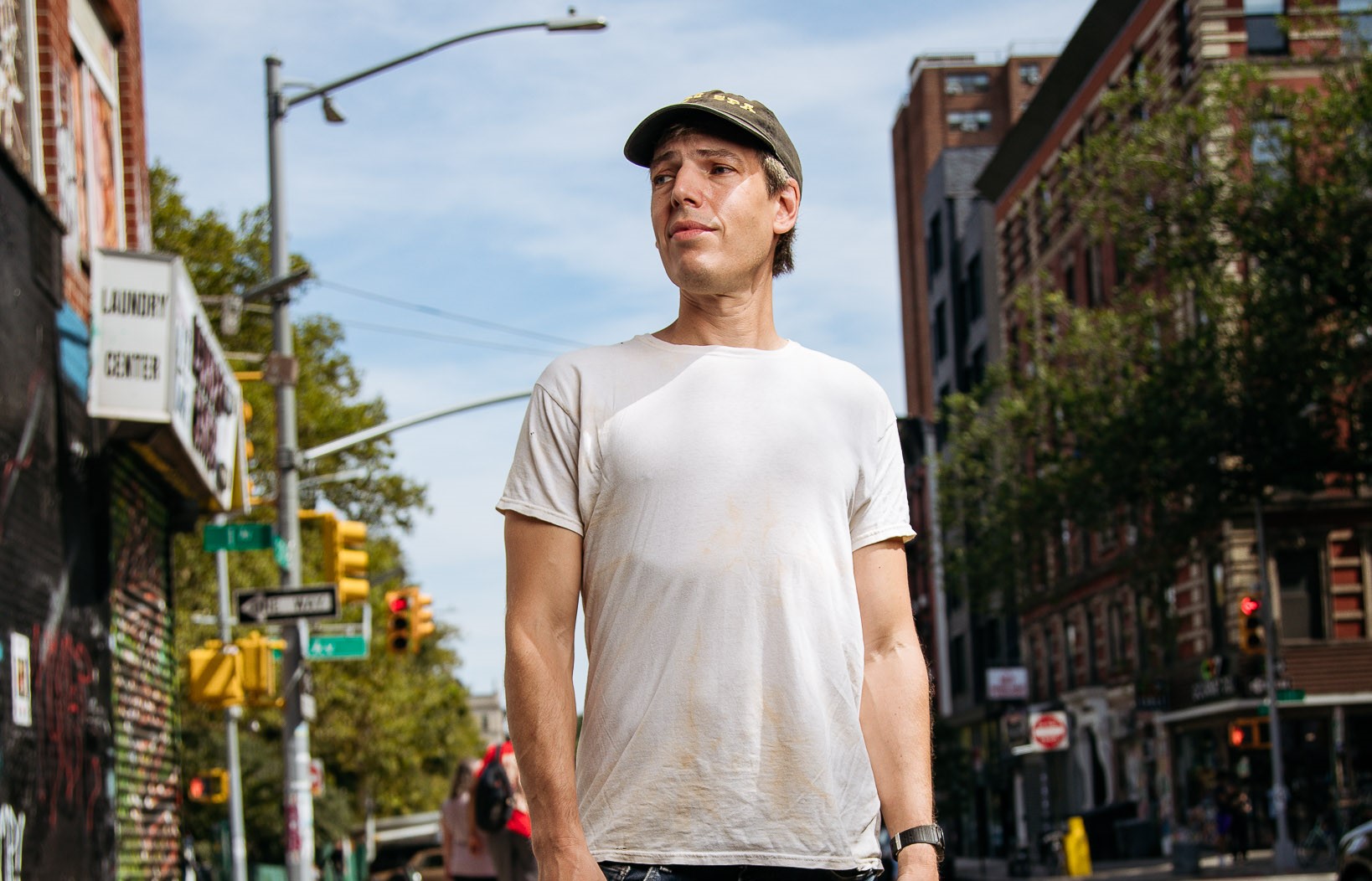


Great interview! I still play "Gravedigger" and other Janus albums on my radio show here in South Africa, always to a great response!